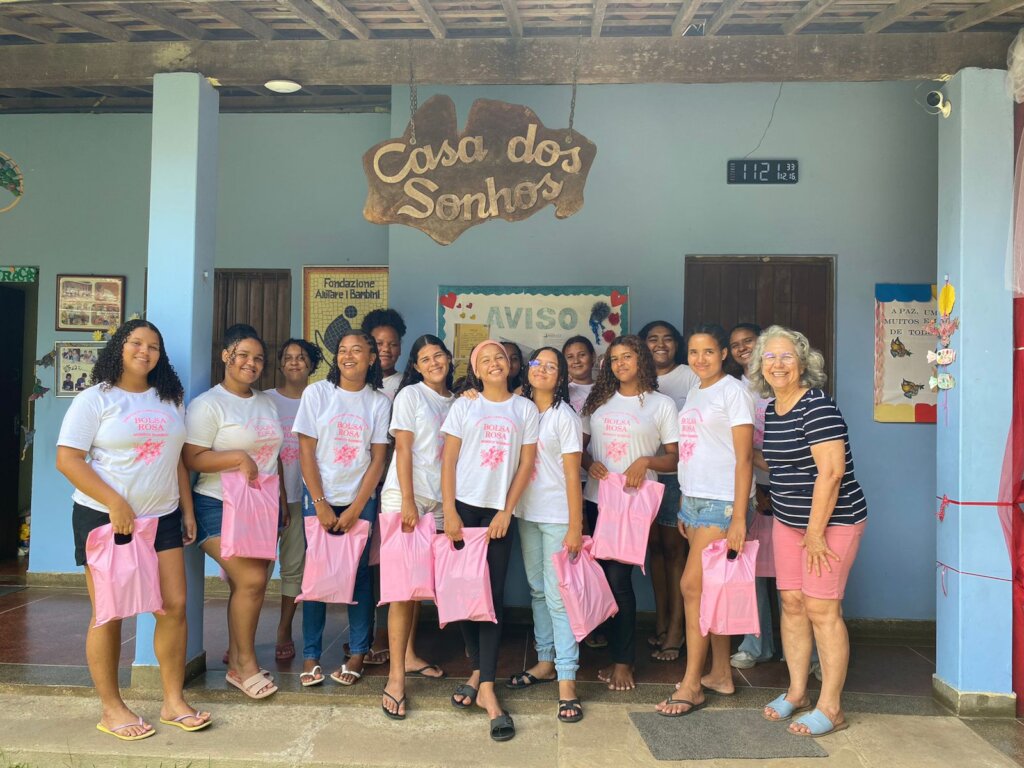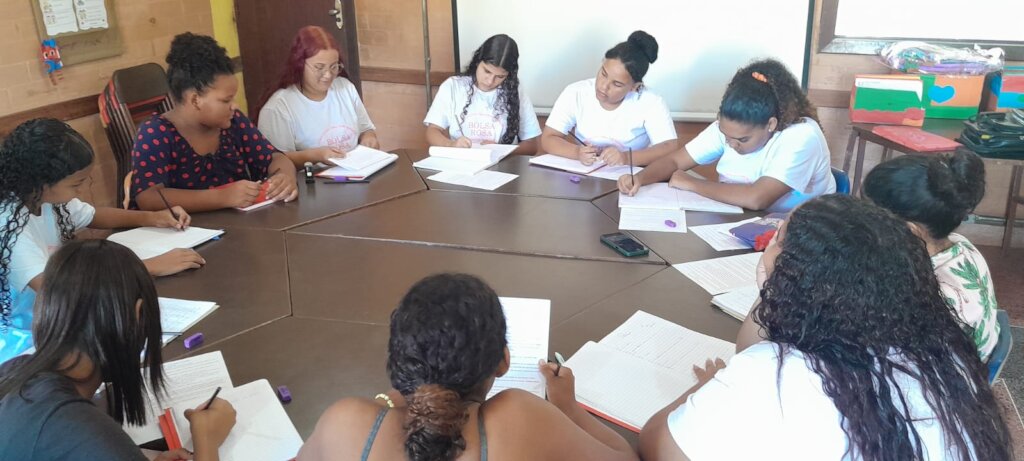By Tidy Minghetti | Project coordinator
Why it is so important to educate girls?
Although gender gaps in adult literacy have decreased since 1990, they remain significant,
especially for the more vulnerable people in low-income countries, as more than two out of five
women are illiterate. One in five children in low-income countries and one in ten globally,
approximately 250 million children, are still not enrolled in primary education today.
In addition to gaps in basic skills such as reading, mathematics, and science, similar gaps have been
observed in transnational studies conducted by the International Association for the Evaluation of
Educational Achievement and the OCSE regarding civic literacy, global competencies, and socio-
emotional skills, all increasingly important for civic and economic participation. The situation is
even more dramatic at the secondary level.
Three out of five adolescents and young people in low-income countries are currently not enrolled
in secondary education, despite commitments made to ensure universal completion of free,
equitable, and quality primary and secondary education by 2030. The disparities are clearly
defined. While enrolment in lower secondary school is nearly universal (98%) in high-income
countries, more than a third of adolescents (40% of girls and 34% of boys) are not enrolled in lower
secondary school in low-income countries.Disparities in participation in upper secondary education are even more pronounced, with less than 35% of girls and 45% of boys enrolled in low-income countries, compared to over 90% of boys and girls in high-income countries.
Beyond access and evnrolment rates, completion trends highlight challenges in terms of the qualityand relevance of educational provision. Worldwide, more than one in four lower secondarystudents and more than one in two upper secondary students do not complete their studies.The massive incidence of early school dropout can be explained by a range of factors, including thelack of relevance of educational content, lack of attention to the specific social needs of girls andthe economic conditions of the poor, lack of cultural sensitivity and relevance, and inadequacy of pedagogical methods and processes relative to youth reality. This is a widely neglected dimension of what many have termed a "global learning crisis".
Mission Bambini has been working in education since 2001 by supporting projects in various countries in Asia, Africa, Latin America and Europe to promote the access to pre-primary, primary and secondary schools for vulnerable children. During the implementation of these projects it became clear that in many contexts’ girls did not have the same chances as boys to continue their education particularly after puberty. The Girls’ Education Program intends to tackle the problem by working on two levels. The first level aims to increase the number of girls who attend and finish secondary school or vocational training. The second level aims to promote the achievement of a tertiary degree for deserving girls. Even though, as stated above, the achievement of the first level can have dramatic effects, the second level would guarantee the real point of change because it breaks the "vicious circle" of poverty with greater incisiveness. A degree means a more prepared and aware resource to change the role of women in society and contribute in a deeper way to its advancement.
Mission Bambini therefore launched the Girls Education Program (called “Borse rosa” in Italian, a pun as the word “borsa” both means a scholarship and a bag, so pink scholarship/pink bag, a support for girls’ education), a fund intended to support female students to access secondary education, high school, vocational training and university. The selection of girls is based on merit as the most deserving girls are also the most motivated to continue their studies, choosing among the poorest and most vulnerable families.
STORIES
1: S.P.S 15 years old, from Santa Rita in the state of Paraiba (Brazil)
Thanks to the Borse Rosa project, Suely was able to attend school and received educational materials such
as books, notebooks, and everything necessary to follow the lessons.
During the interview the project coordinators gave her advices and encouraged her to have confidence and
work to improve her academic development.
Having the opportunity to take part in the Borse Rosa project motivated Suely to improve her studies and
allowed her to contribute in her personal development.
I feel like I have gained more confidence in myself, the ability to relate to others, and to be more convinced
and surer of what I can and want to achieve.
Thanks to Mission Bambini and the Borse Rosa project for allowing me to continue studying and building my
future!
2: Maria, 18 years old, from Santa Rita in the state of Paraiba (Brazil)
Thanks to the support of Mission Bambini she had the opportunity to participate in the state project
Conexão Mundo (Connection with the world), which takes students from public schools to other countries
to learn new languages, cultures, and to learn English and Spanish.
It was one of the most beautiful and meaningful experiences she had the opportunity to live.
During this exchange program she chose what to study at university: biomedicine.
What I would like, in fact, is to specialize in forensic medicine, and thanks to the support of Mission
Bambini and the Borse Rosa project, I hope to achieve this goal.
Links:
Project reports on GlobalGiving are posted directly to globalgiving.org by Project Leaders as they are completed, generally every 3-4 months. To protect the integrity of these documents, GlobalGiving does not alter them; therefore you may find some language or formatting issues.
If you donate to this project or have donated to this project, you can recieve an email when this project posts a report. You can also subscribe for reports without donating.
Support this important cause by creating a personalized fundraising page.
Start a Fundraiser
